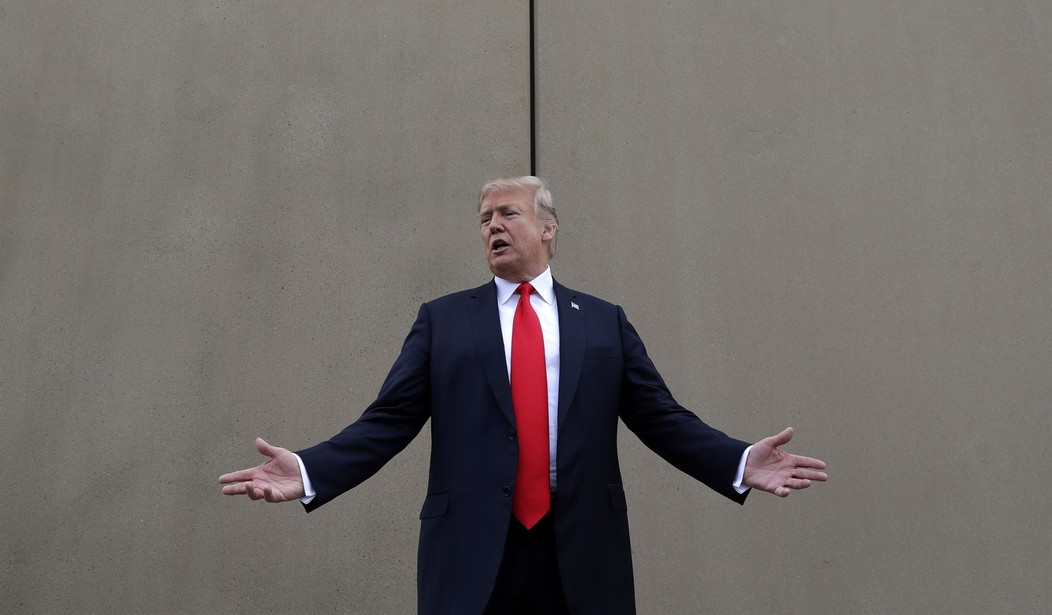As the fight to fund President Trump’s proposed border wall heads to the Senate today, there is far more at stake than a border wall. Support or opposition to the wall divides mainstream America from the Washington Swamp just as surely as the wall itself would divide America and Mexico and countries to the south. Failure to fund and build that wall would tell mainstream America that the Swamp has prevailed and that our interests and our votes have no effect on the direction of the country.
Thanks to the leadership of Rep. Mark Meadows (R-NC) and the House Freedom Caucus, the House has passed the Continuing Resolution with funding for the border wall. Now the Senate will decide, and they are deciding far more than funding for a wall.
Beneath the political arguments of sovereignty and rule of law versus globalism and open border lies a deeper psychological question: Do the “forgotten Americans” – the center-right mainstream who elected Donald Trump – have the power to change the direction of the country through our votes, or are we passive recipients of whatever policies the Swamp denizens choose to impose on us?
The idea of citizens influencing the nation’s policies – that the only legitimate power of government derives from the consent of the governed – was, of course, central to the philosophy and moral principles that undergirded the founding of the nation. But ideas of influence and control over one’s environment are also especially important from a psychological perspective. Gaining mastery or at least influence over things and people around us plays a central role in childhood and on throughout the rest of our lives. From infants grasping and manipulating objects to later struggles over bedtime and food choice and on to the teenage wars of clothing and then other decisions throughout life, the desire to control our circumstances is deeply ingrained in the human psyche.
Donald Trump is president not only because he made the right promises to represent the interests of those forgotten Americans, including a wall to help in securing our border, but also because he tapped into the deep, growing frustration that the center-right mainstream felt at being ignored, disdained, and essentially disempowered by the ruling class. Tired of politicians who court them with common-sense promises to secure our borders but who then cave to the far left’s demand for open borders and the mega-donor demands for cheap labor, voters saw something different in candidate Trump. In short, he seemed to “get it,” to understand not just the political interests of mainstream Americans but also the sense of powerlessness and frustration that had been growing for years. And his gruff campaign style that the talking heads and experts mistook for amateur blundering came across to his supporters as evidence that he was a fighter, and that he would fight to carry out his promises.
Recommended
For the people who put Donald Trump in the White House, the border wall is more than a wall; it is a symbol of national sovereignty over globalism, of order over chaos, and of rule of law over lawlessness. Those concerns are important enough in their own right. But for mainstream Americans who have watched in disgust as the Washington ruling class looked after its own interests while ignoring the interests of the rest of us, the wall also represents the fundamental ability of the American people to affect public policy.
When President Trump told Nancy Pelosi and Chuck Schumer that he would shut down the government if they failed to fund the wall, his supporters saw the fighter they had elected actually doing what he had promised to do. And that confirmed for his voters that their votes might, for once in a long time, make a difference in what our government does.
And though funding for the wall appeared dead earlier this week, pressure from the House Freedom Caucus and grassroots conservatives kept the wall alive, along with everything it stands for in the eyes of middle America.
Technically, the decision over funding the wall now rests with the Senate. But if, as our Founders believed, the only legitimate power of government derives from the consent of the governed, the decision is also up to you.
With Donald Trump in the White House and with courageous leaders in the House Freedom Caucus, your voice can matter again. Contact wavering senators and tell them to #BuildTheWallNow.

























Join the conversation as a VIP Member